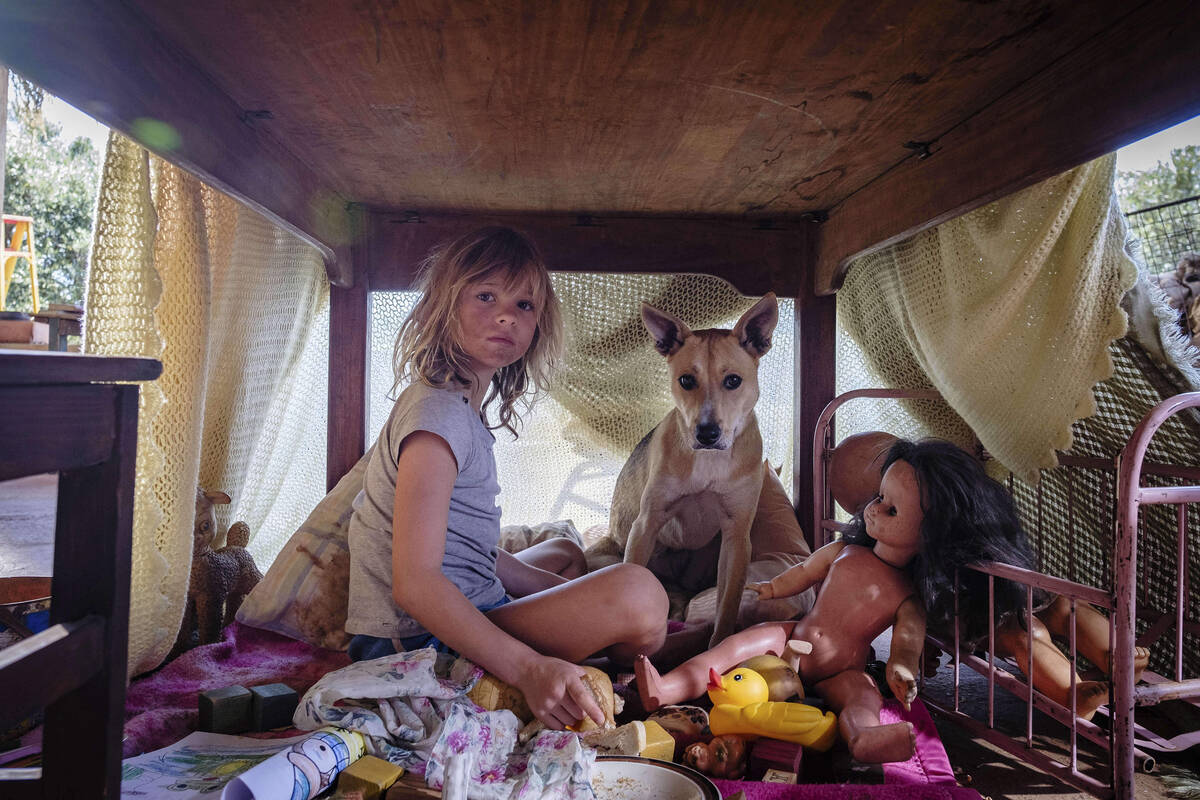‘Dogs’ captures a child’s singular view of a volatile time
It’s 1980 in Zimbabwe, formerly known as Rhodesia, and a war rages, while a high-stakes election could change this country forever.
For 7-year-old Bobo (Lexi Venter), life continues on at her white English family’s rural farm, where she’s grown accustomed to their military escorts for trips to town, and not being allowed in her parents’ bedroom at night, lest they mistake her for a “terrorist” and shoot her.
Through the eyes of a child, the most complex conflicts can be reduced to their core truths, lyrically expressed in “Don’t Let’s Go to the Dogs Tonight,” the directorial debut of acclaimed American-South African actress Embeth Davidtz, who also adapted the source material, a 2001 memoir by British-Zimbabwean writer Alexandra Fuller. Davidtz pulls triple duty, co-starring as Bobo’s mother, Nicola.
Bobo invites us into her world via matter-of-fact narration, explaining things how she sees it: colonialism, war, race and African culture out of the mouths of babes. From this perspective, the heated politics and civil unrest of this time are tempered, though not softened, as she tries to make sense of the world around her, simplifying and flattening into binaries:; this or that. “Are we African or English?” “Are we racist? I heard it on the radio.”
Our lens into this world, Bobo is the planet around which “Don’t Let’s Go to the Dogs Tonight” revolves, embodied with wild abandon by Venter, whom Davidtz found when she put out a call for a free-spirited young girl, untrained in acting.
Davidtz has captured something like lightning in a bottle with Venter’s performance of pure, feral girlhood. As Bobo, she is a whirling dervish, entirely unencumbered by self-consciousness on screen. She asks inappropriate questions and is perfectly confident roaming the sprawling family farm, on horseback or motorbike, always barefoot. She may be often dirty and unkempt, but she composes herself with proper English manners when necessary. She is simultaneously innocent and knowing.
Davidtz carefully stitches together the performance through editing and voice-over, maintaining Venter’s authentic spirit. Bobo switches from know-it-all explanations to whispered incantations, superstitious wishes from a child. “If you love me you’ll turn around” she whispers at the sight of her father’s (Rob van Vuuren) retreating back, as he heads off for a military tour (though the details are never quite clear — Bobo is lightly neglected by her parents).
The one person who does pay attention to her is Sarah (Zikhona Bali), one of their African servants. She is tender, loving and playful, telling her stories of African mythology. Bobo’s own mother drinks late into the night, and frequently passes out in a silky negligee, clutching a machine gun.
“Don’t Let’s Go to the Dogs Tonight” captures the complex dynamics of being a white minority, a strange social, cultural and political place to inhabit.
Davidtz, who directs the film with striking beauty and a visceral immediacy, is also gripping in her performance as Nicola, battling alcoholism and grief.














